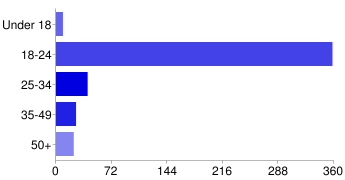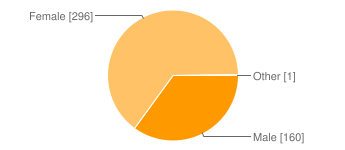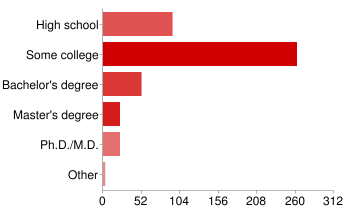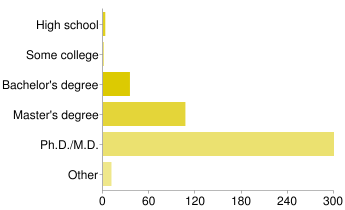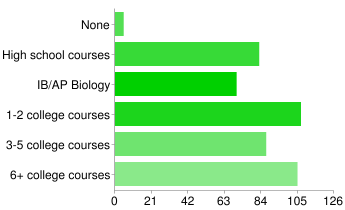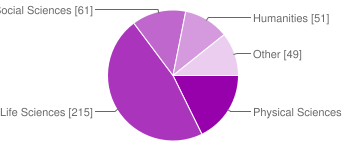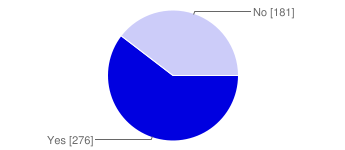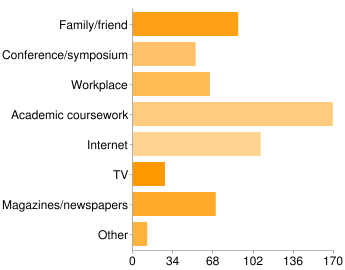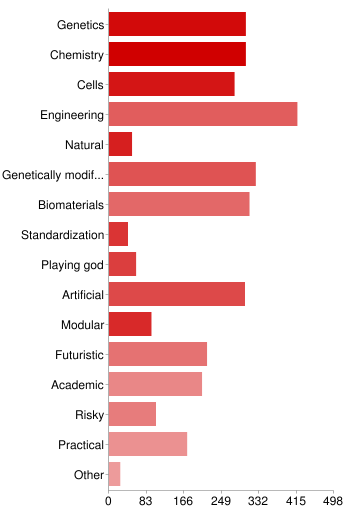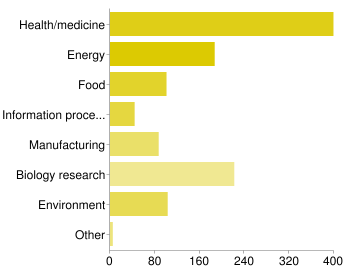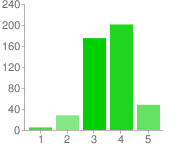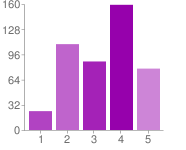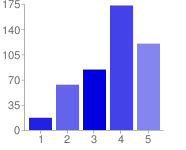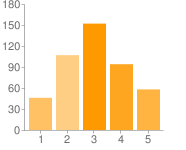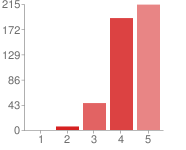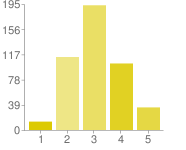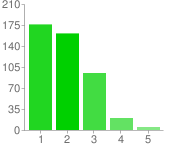Team:Brown/Human Practices/Synbio survey
From 2010.igem.org
Survey
We were interested in how the rest of the community at Brown University perceived Synthetic Biology. We created a survey this fall and digitally distributed it across campus. The results, taken from 457 respondents, are as follows:
Demographic Questions
How old are you?
The majority of our respondents were undergraduates, although a significant number of faculty and/or graduate students offered their opinions as well.
How would you describe your gender?
Respondents were about 2/3 female, 1/3 male.
What is the most recent level of education you've completed?
Again, most of the respondents were university students. We suspect that many of those who answered 'High School' also fell into the 'Some College' category, so for the purpose of analyses these two will be grouped.
What is the highest level of education you plan to attain?
More than 80% of respondents are seeking at least a Master's degree.
What is your level of biology education?
There is a good spread of biology education in our respondents, which lends itself well to analysis. Very few respondents had absolutely no biology education.
How would you classify your concentration?
Familiarity with Synthetic Biology
Have you heard of "Synthetic Biology" before?
If yes, where?
Define what you think Synthetic Biology is (or might be)
It appears that "synthetic biology" is a phrase that evokes many different images in people's minds. While some respondents are familiar with the academic field that iGEM celebrates, others associate it solely with the creation of life and new organisms (a la Craig Venter). Yet another common understanding emphasizes the "synthetic" portion, focusing on the incorporation of inorganic material with living organisms.
Some sample responses:
- "Man's manipulation of nature for a better explantion of the end result, or to obtain a better end result."
- "Synthetic biology is the field of creating new innovations using the systems available in nature."
- "The creation and study of organisms derived through synthetic means."
- "Synthesizing life in a laboratory setting to perform tasks."
- "a way to merge something living with inanimate objects"
Uses of Synthetic Biology
What words would you use to describe synthetic biology? (from a list)
A weighted tag cloud of all the words:
Pick 2 areas you think would most benefit from synthetic biology
Synthetic biology is the future of biology
1 - Disagree strongly -> 5 - Agree strongly
Human Practices / Ethics
I am concerned about the deliberate misuse/abuse of genetically modified organisms
It is interesting that this question created the most apparent divide among our subjects, as the only question whose frequency distribution contains two peaks.
1 - Disagree strongly -> 5 - Agree strongly
I am concerned about the unintended consequences of genetically modified organisms
1 - Disagree strongly -> 5 - Agree strongly
There should be greater restrictions on genetic modification of plants/animals
1 - Disagree strongly -> 5 - Agree strongly
Genetically modified organisms can be beneficial to society
1 - Disagree strongly -> 5 - Agree strongly
It is currently easy to genetically modify a plant/animal
1 - Disagree strongly -> 5 - Agree strongly
Genetic modification is morally/ethically wrong
1 - Disagree strongly -> 5 - Agree strongly
Discussion
What's the coolest use of synthetic biology you can think of?
Energy and human health were two common applications, corroborating our other data that these were the two fields people thought would benefit the most.
Sample responses:
- "Maybe developing a solar panel that can create energy as a biological system (in a way a biological system/organism would) instead of using expensive solar crystals and cells."
- "some really efficient biogas making bacteria that don't need a lot of input."
- "Creating living bio-homes with fluorescent bacteria instead of electrical lighting, with the actual home made of a modular living creation that is basically autotrophic."
- "perhaps finding a way to fix atmospheric carbon into a solid state carbon--reducing global warming"
- "Engineering synthetic or genetically engineering bacteria or algae to produce fossil fuel supplements or replacements."
- "Make me an interface where I can watch Youtube videos directly into my brain."
- "Drug delivery mechanisms."
- "Using synthesized viruses or bacteria to fight cancer."
- "Yeast that are able to withstand higher alcohol concentrations and therefore produce higher alcohol content beer."
Do you have any other opinions or thoughts on synthetic biology that you would like to share with us?
There was much insight from people spanning all ages and academic disciplines. Some emphasized their enthusiasm for the emerging field of synthetic biology, while others acknowledged legal, philosophical, and scientific implications. Finally, the issue of regulation and commercialization proved to be an interesting topic for many.
Sample responses:
- "I think that synthetic biology has great promise in many different fields. I do believe, however, that regulations need to be put in place sooner rather than later to avoid unintended consequences."
- "It seems like a mistake to be creating organisms before we have a better understanding of micro- and macrobiological interactions; the number of possible interacting groups of organisms increases exponentially with the number of organisms, and I don't think that humanity has enough knowledge to understand the implications of a given change until it has occurred."
- "I think governmental regulation of synthetic organism creation is too strong due to ignorance/paranoia of the public. However, I think it is important to rigorously teach ethics of biosynthesis to everyone who wants to do it, but maybe have ethical policy monitored within scientific circles, and/or get the public involved more."
- "I believe intentions are important but can easily become lost in the for-profit industry. This is my strongest concern with synthetic biology."
- "I think that synthetic biology perhaps has beneficial uses, but I think it is dangerous (like all science) in its assumption or potential assumptions and in that our legal systems does not have the capacity to keep up with rapid changes in biological science."
- "People haven negative views on synthetic biology because it is breaking the line between manipulating inorganic objects to perform new functions and manipulating organic objects. This line can be considered dangerous because we are organic objects, and will have fear that this technology may change who or what we are. I believe that in order for the development of synthetic biology to be successful, the common people needs to be assured that humans as a species will not change fundamentally."
 "
"
